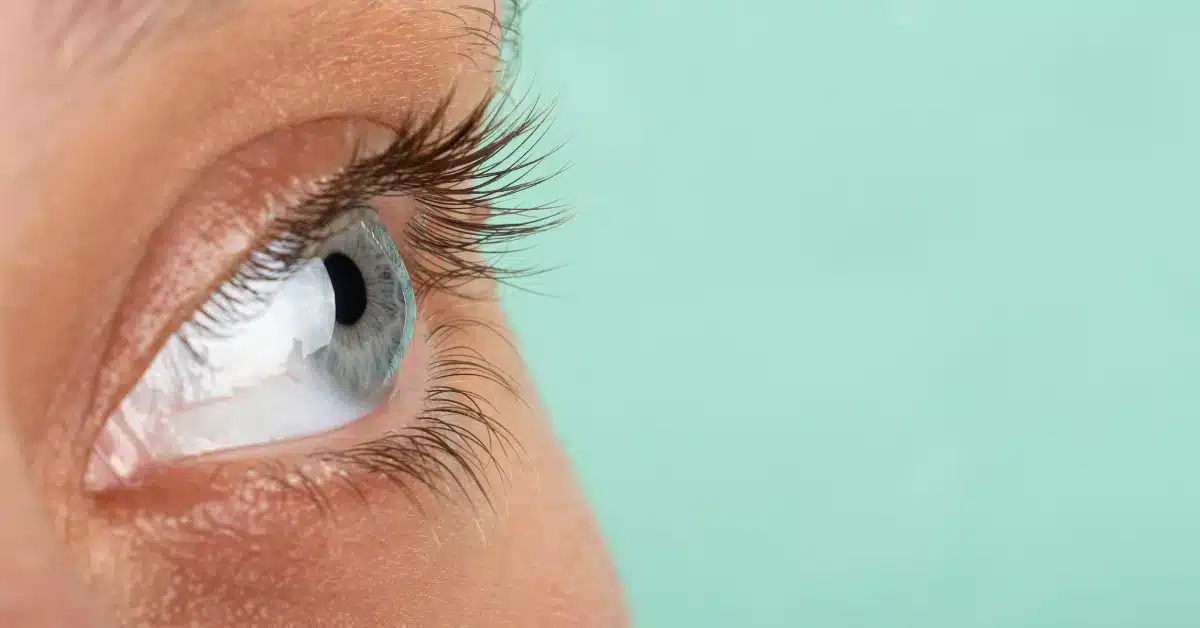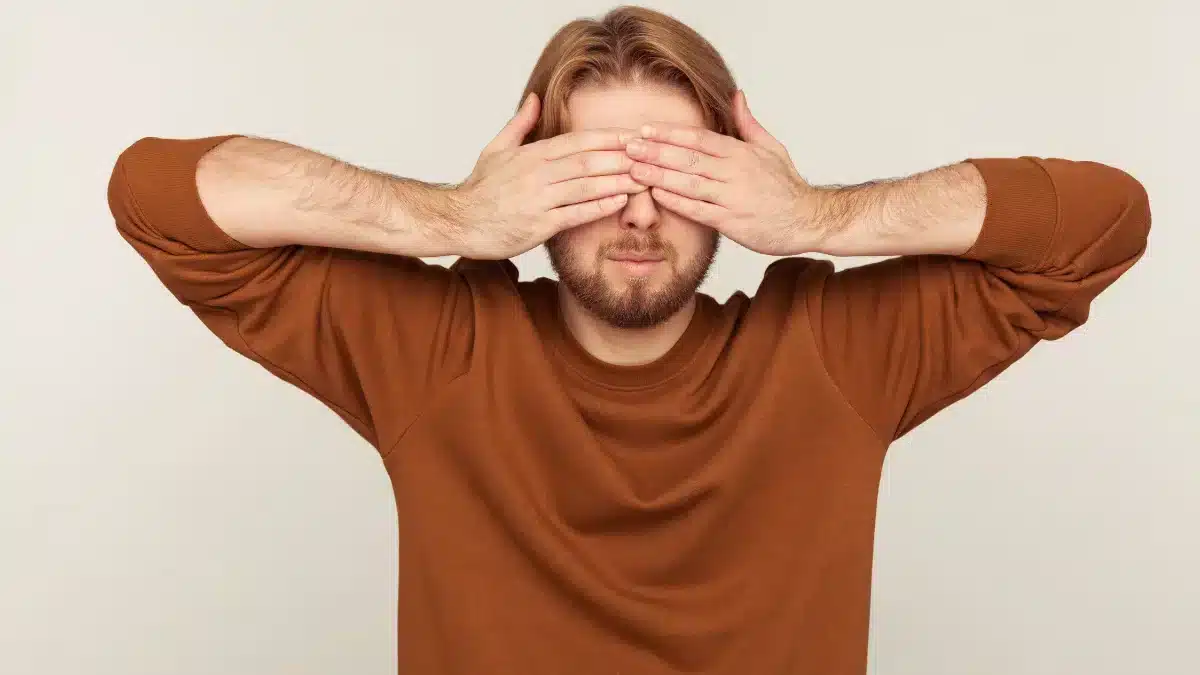Corneal Abrasion Symptoms: How to Recognise Corneal Abrasion
Corneal abrasion, also known as a scratch in the eye, may happen for various reasons.
If a corneal abrasion happens, you might experience headaches, blurry vision, gritty feeling in the eye, eye redness, and photophobia or light sensitivity.
You can take care of your eyes and treat corneal abrasion using many ways.
Some such ways include wearing an eyepatch and eye drops and ointments.
Wear protective glasses to protect your eyes from abrasion when doing dangerous physical activity.
What is Corneal Abrasion?
The formal term for a scratch in the eye is a corneal abrasion.
It can happen when you poke your eye or when something like dirt or sand gets trapped in your eyelid.
Your eyes may hurt due to it, and it won’t necessarily get better when you close it if you can complete it.
Even regular lighting will make your eyes sting and burn.
This scratch is actually on the cornea. It is the transparent layer covering the iris, the colored part of the eye.
It also works as a shield for your pupil, the black circle in the middle of the eye.
Corneal Abrasion Symptoms
The symptoms of corneal abrasion include pain, tearing along with the following:
Gritty feeling in the eye
If something is trapped in the eye, you might have a gritty or rough feeling in the eyes.
You might feel like you have some dirt or dust particle trapped in your eye, which may be causing the gritty texture.
You can blink your eyes rapidly or wash them gently with water to clear them away. But remember not to rub your eyes when it is in your eyes.
This is because rubbing your eyes with the dirt particle inside may result in even more scratching on the cornea.
Redness
You might see redness in your eyes if you have a corneal abrasion.
The vision behind the area of the cornea, the clear transparent layer of the eye, might appear red in or near the affected areas.
Blurry vision

You might see blurry from the eye that has corneal abrasion.
You may see blurry from the eye that had corneal abrasion for several days after first having it.
This is because the part affected by the scratch is the cornea itself.
Headache
There may also be a headache due to corneal abrasion.
The reason why it leads to headaches is because of the increased sensitivity to light.
Photophobia (light sensitivity)
Photophobia or light sensitivity is also a symptom of corneal abrasion.
In Photophobia, you may experience light sensitivity and see bright spots.
The regular bright light may feel too bright, tears may come from your eyes, your forehead may pain, or you may squint one or both of your eyes.
Causes
You might get a corneal abrasion in these cases:
- You get any chemicals in your eyes.
- Poke your eyes with a pen, makeup brush, or fingernail.
- Wear poor-fitting or dirty contacts.
- Rub your eyes too hard.
- Overwear contact lenses.
- Have surgery without the required eye protection.
- Get some eye infection.
- Playing sports or engaging in risky physical activities without wearing safety glasses.
- Get particles of sand, dirt, sawdust, ash, or some other foreign substance in the eye.
As it is possible that you are not feeling the symptoms right after, you may be unable to figure out the cause.
Diagnosis
Since the cornea has many nerve endings, even the tiniest scratch might feel uncomfortable and painful.
Even if it cannot be seen, you will find something rough that may even be poking you in your eye.
To diagnose a corneal abrasion, the doctor will examine the eye and give eye drops to relax eye muscles and widen the pupil.
They might also give Fluorescein drops to highlight the uneven features of the cornea.
Then they will examine your eye using magnification tools and unique lamps to check for foreign substances and scratches.
Treatment
Your treatment will go ahead based on what they find in the eye exam.
Given below are some treatment options:
- Moisturizing eye drops or ointments can help by adding a soothing layer over the cornea.
- A unique contact lens can speed healing and reduce pain.
- Eye drops to dilate or widen your pupil may help relieve pain.
- Antibiotic eye drops or ointment may help prevent eye infections.
- A patch over the eyes may help prevent blinking and worsen the abrasion.
While a minor corneal abrasion heals in a day or two, a large one might take a week to recover.
Prevention

Preventing corneal abrasion is not always possible.
You can also avoid the corneal abrasion from getting worse by using the following steps:
- Clean the contact lenses and follow the prescription of your eye doctor.
- Wash your hands regularly. Don’t just wash it before touching your eyes but also pass it regularly to prevent the spread of germs.
- Wear protective eyewear in dangerous places, such as while playing some sports.
- Remain aware of your surroundings, and avoid walking in hazardous places.
Takeaway
There are, thus, many symptoms of corneal abrasion.
It is recommended that you approach an Ophthalmologist as soon as possible if you suspect yourself of having eye abrasion.
You should also note any symptoms of eye abrasions such as redness, gritty feeling in the cornea, tearing of the eyes, headache, and photophobia or light sensitivity.
You can use special contact lenses to heal and protect your eyes faster.
Also, consider wearing eye patches to protect your eyes from blinking and further hurting their eyes.
Wear protective goggles or glasses to protect your eyes from dirt and dust.
Frequently asked questions
How long does it take for a scratched cornea to heal?
While minor corneal abrasions heal within a day or two, it might take even a week or longer to heal if the abrasion is too deep or large.
What does a corneal abrasion feel like?
You might have something in your eyes. It may also feel like stinging and burning in your eyes. Your eyes may become sensitive to light, so whenever you look at the light, you may feel like blinking.
Can a corneal abrasion heal on its own?
These are common eye injuries that generally heal on their own. It might take several days for them to heal, but it eventually does heal. However, the doctor may help by prescribing antibiotics that will prevent corneal ulcers from happening.
Can the cornea repair itself?
Yes, the cornea can repair itself. It can treat injuries and diseases itself. However, for more severe problems, you may need to go to the eye doctor.
WowRx uses only high-quality sources while writing our articles. Please read our content information policy to know more about how we keep our content reliable and trustworthy.






